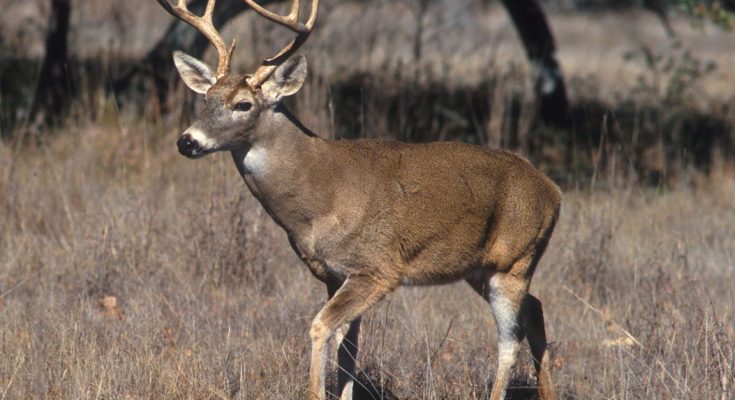Image: White-tailed deer. Image credit: Wikipedia.org
#CanadianWildLife; #Covid19Virus; #WildWhiteTailedDeer; #Quebec; #NCFAD; #WOAH; #EnvironmentCanada
Ottawa/CMED: The COVID-19 virus has been detected in Canadian wildlife for the first time late last month in three wild white-tailed deer in Quebec, Environment Canada said.
Environment Canada added that all deer appeared healthy and showed no clinical signs of COVID-19.
The discovery follows recent reports of the virus spreading among white-tailed deer in the United States.
There has so far been no known transmission of COVID-19 from deer to humans and Environment Canada said in a news release it remains “largely a disease of human concern and typically spreads from human to human”
Multiple species of animals, including dogs, cats, farmed mink, and zoo animals had been infected by COVID-19, but this is the first time in Canada that it has spilled over into wildlife.
After sampling deer in the Estrie region of Quebec from Nov. 6 to 8, the National Centre for Foreign Animal Disease (NCFAD) was able to confirm the virus in three of them on Monday. The World Organisation for Animal Health (WOAH) was notified on Wednesday.
“As this is the first detection of SARS-CoV-2 in wildlife in Canada, information on the impacts and spread of the virus in wild deer populations is currently limited. This finding emphasizes the importance of ongoing surveillance for SARS-CoV-2 in wildlife to increase our understanding about SARS-CoV-2 on the human-animal interface. Federal, provincial and territorial partners continue to monitor and assess the potential implications of the virus on Canadian wildlife,” Environment Canada said in a news release Wednesday.





